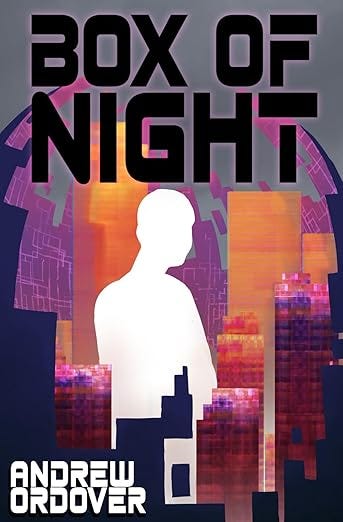The Game is Playing You
My new novel, "Box of Night"
Sometimes, people ask me how long it takes to write a book, It’s kind of an impossible question. Even if I only dealt with the actual, literal, typing of words, there is no single answer. I’ve written four novels, and each one has oozed from my fingertips onto the keyboard at its own pace. And the actual, literal typing is just a small piece of the puzz…
Keep reading with a 7-day free trial
Subscribe to Scenes from a Broken Hand to keep reading this post and get 7 days of free access to the full post archives.


